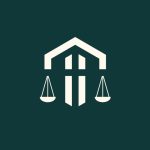Cyber Security and Data Privacy: The imperative for Technological Solutions and Legal safeguards
ARTICLE

Introduction:
The exponential surge in internet usage throughout recent decades has profoundly impacted everyday human existence. Technological strides like cloud computing, robotic processes, and predictive analytics have further accelerated this transformation. While we acknowledge the advantages of the technological advancements, the downsides along with them cannot be disregarded. This surge in technology adoption, however, has raised the stakes for data privacy, as these innovations have become more susceptible to cyberattacks. Personal information is routinely stored on websites, social media platforms, and applications, including banking apps, to facilitate service provision. Yet, some of these platforms either surpass data usage limits or lack proper safeguards, leaving them vulnerable to data breaches. It’s important to note that “Data Privacy” and “Data Protection” are distinct concepts; the former focuses on defining data access, while the latter provides the framework for restricting data access.
In the sphere of “Cybersecurity,” safeguarding information technology, including computers, servers, electronic systems, mobile devices, networks, and data, from malicious cyberattacks is paramount. These precautions aim to prevent data loss, hacking, or other attacks. Awareness of potential threats, such as viruses and malware, is essential in this digital era. This article delves into the critical domains of cybersecurity and data privacy, highlighting their challenges. It underscores the need for legal and technological safeguards in Pakistan to protect sensitive information in the light of Western best practices.
Cybersecurity and its linkage to Data Privacy:
Data privacy involves protecting personal information from unauthorized access, use, disclosure, alteration, or destruction and is generally considered as a right. It is the subset of Cybersecurity which is the broader aspect and involves the safeguarding against unauthorized access or hacker attacks. It encompasses measures like stringent password policies, data encryption, software updates, firewalls, and security tools to prevent unauthorized network and system access. Continuous monitoring for security risks and swift responses to incidents are also integral components of cybersecurity.
In essence, data privacy and cybersecurity are closely intertwined. Privacy laws compel entities, such as businesses, to secure personal information they possess. Privacy and security go hand in hand, especially when businesses collect, handle, and maintain personal data. Failing to secure customer privacy not only leads to penalties but also erodes consumer trust.
Potential Repercussions of Cyber Attacks:
The repercussions of a cyberattack can be severe, impacting individuals and businesses alike. These are not just limited to Financial losses, Reputational and psychological damage, and legal liabilities but also include the Identity theft and greater threats to National Security such as the risks of cyber attacks on power grids or financial systems which may damage the public safety and security. One of the examples of these cyberattacks include the 2013 Target data breach which cost the company over $200 million in financial losses and led to a significant decline in its stock price. The irony is that several such crucius attacks are not even known or managed timely. It can be seen from the recent stealing of the data of more than around 250 restaurants from the softwares in the hotels of Pakistan, which is allegedly being sold and the matter is still under investigation. This calls for the developments in coping mechanisms as well.
The risks posed by ChatGPT to cyber security:
The introduction of ChatGPT has intrigued millions but also raised concerns about its potential exploitation by malicious actors. ChatGPT introduces vulnerabilities for hackers, enabling various cyber threats, including phishing attacks, malware deployment, social engineering tactics, and data privacy breaches. It poses issues related to intellectual property as well. The rising influence of AI in a world plagued by a 38% increase in data breaches(according to the Jim Hilton Harvard Business review), demands attention and worldwide collaborative efforts to mitigate these risks.
Concerns in Pakistan:
Pakistan has constitutionally enshrined the right to privacy is in Article 14(1), which protects the dignity of individuals and the privacy of their homes, though the interpretation has expanded to encompass privacy in all aspects of life. Data privacy grants individuals control over the extent to which their personal information is shared. To safeguard this right, Data Protection laws exist to govern the proper handling of personal data. But unfortunately, at the same time Pakistan faces significant data protection challenges.
In recent times, Pakistan has been subject to numerous data breaches including a cyberattack on Federal Board of Revenue (FBR) system compromising the data of millions of taxpayers, data leaks from National Database and Registration authority (NADRA), although it is responsible for ensuring the “due security, secrecy and necessary safeguards for protection of data and information according to the NADRA Ordinance 2000. K-Electric, the company which manages the generation, transmission and distribution of power was subject to a cyberattack, Meezan Bank’s database of 69,189 bank accounts were put on sale on the dark web as a result of a cyber-attack costing the bank data worth $3.5 million, however due to speedy action the loss was managed. Other than these, the increasing sophistication of cybercrimes and the state-sponsored attacks by different countries pose a great threat to Pakistan. Such instances raise questions on the country’s cybersecurity strategy and the state has failed to legislate on the issue of Personal data protection.
These incidents highlight the need for robust data protection legislation. Raising awareness and providing protection mechanisms are essential. Strengthening legal infrastructure, such as the Prevention of Electronic Crimes Act and National Cybersecurity Policy, is also pivotal. International collaborations with organizations like APEC, OECD, and the European Commission can provide guidance and support.
Western best practices:
The West has responded to the escalation of technological capabilities by enacting regulations worldwide to control data collection, usage, and secure storage. Key privacy regimes include the General Data Protection Regulation (GDPR) for the EU, the California Consumer Privacy Act (CCPA) for the USA, and the National Institute of Standards and Technology Cybersecurity Framework (NIST CSF). The NIST CSF, a voluntary framework, plays a vital role in risk management and mitigation. It provides a structured approach through five components: Identification, Protection, Detection, Response, and Recovery. GDPR governs the personal data of EU citizens, emphasizing data collection, storage, and individual control over personal data, including the right to be forgotten. Numerous countries, such as Canada, Japan, Australia, and Singapore, have implemented comprehensive data protection regulations, some closely mirroring GDPR. CCPA grants individuals control over their personal data, including the right to opt out of data sales. It mandates transparency regarding data collection in California and emphasizes the duty of businesses to prevent data breaches. CCPA grants consumers the right to take legal action and seek damages for non-compliance, overseen by the Attorney General’s office.
Certain countries have industry-specific privacy regulations, like the Health Insurance Portability and Accountability Act (HIPAA) in the United States, which regulates the handling of personal healthcare data. These practices are fruitful as they fortify data security, build trust, reduce legal risks, enhance data management, expand market opportunities, mitigate cybersecurity risks, protect individual rights, and promote innovation. By following these guidelines, organizations can establish a strong foundation for data protection in an increasingly digital world. and nations can further modify their regulatory landscape.
Way Forward:
In the rapidly evolving digital age, the safeguarding of our data and the protection of our privacy have never been more critical. It’s high time for our government to take the lead. We must advocate for the enactment of laws that champion data rights and prioritize citizens’ privacy as an inviolable fundamental right. As we look to the business landscape, it’s clear that accountability and enforcement are pre-eminent. The Security and Exchange Commission Pakistan (SECP) must take swift action to ensure that companies uphold stringent cybersecurity controls. By setting clear guidelines and demanding the reporting of cyberattack incidents, we can fortify our defenses against ever-evolving threats.
In an era marked by the specter of state-sponsored cyber warfare, we cannot afford to be complacent. Our collective efforts must focus on bolstering our cybersecurity infrastructure, enhancing detection and response capabilities, and bringing up seamless information sharing between the public and private sectors. Collaboration between the government and industry leaders is the key to success. One glaring issue lies in the accessibility of swift and effective response mechanisms, particularly in the private sector. The government must institute checks and balances, backed by dedicated monitoring bodies, to ensure that private entities fulfill their responsibilities in securing our data. Additionally, international partnerships will play a pivotal role in crafting state-of-the-art infrastructure that aids in protection, investigation, and responses to cyber threats.
To empower our nation for the digital age, we must invest in our youth. Providing opportunities for skill development and exposure to pioneering technologies will equip our younger generation with the tools needed to tackle modern challenges head-on.
In conclusion, as we wrestle with the challenges of information technology, we must remain vigilant. Large-scale cyber incidents threaten not only our economy but also the fabric of our daily lives. To secure our future, we must adopt an all-inclusive approach, incorporating risk assessment, stout security measures, adaptive policies, and rigorous testing. Only by doing so can we forge a resilient digital landscape, ensuring the safety and prosperity of our nation in the face of ever-evolving cyber threats.
References:
- What is Data Privacy -bit.ly/3PJXGNT
- Mohsin, Kamshad, Data Privacy and Cybersecurity (December 11, 2022). Available at SSRN: https://ssrn.com/abstract=4299439 or http://dx.doi.org/10.2139/ssrn.4299439
- What is the relationship between Data privacy and Cybersecurity- https://www.tutorialspoint.com/what-is-the-relationship-between-data-privacy-and-cybersecurity#
- An Introcution to Cybersecurity and Data Protection – https://online.york.ac.uk/resources/introduction-to-cyber-security-data-protection/#cybersecurity
- 4 areas of cyber risk that boards need to address, Sander Zaijlmaker, Chris Henter and Michael Siegei – Harvard Business Review
- Cyber Surveillance and Big Data – RSIL
- What are the Laws governing data privacy-bit.ly/3LrgAGw

